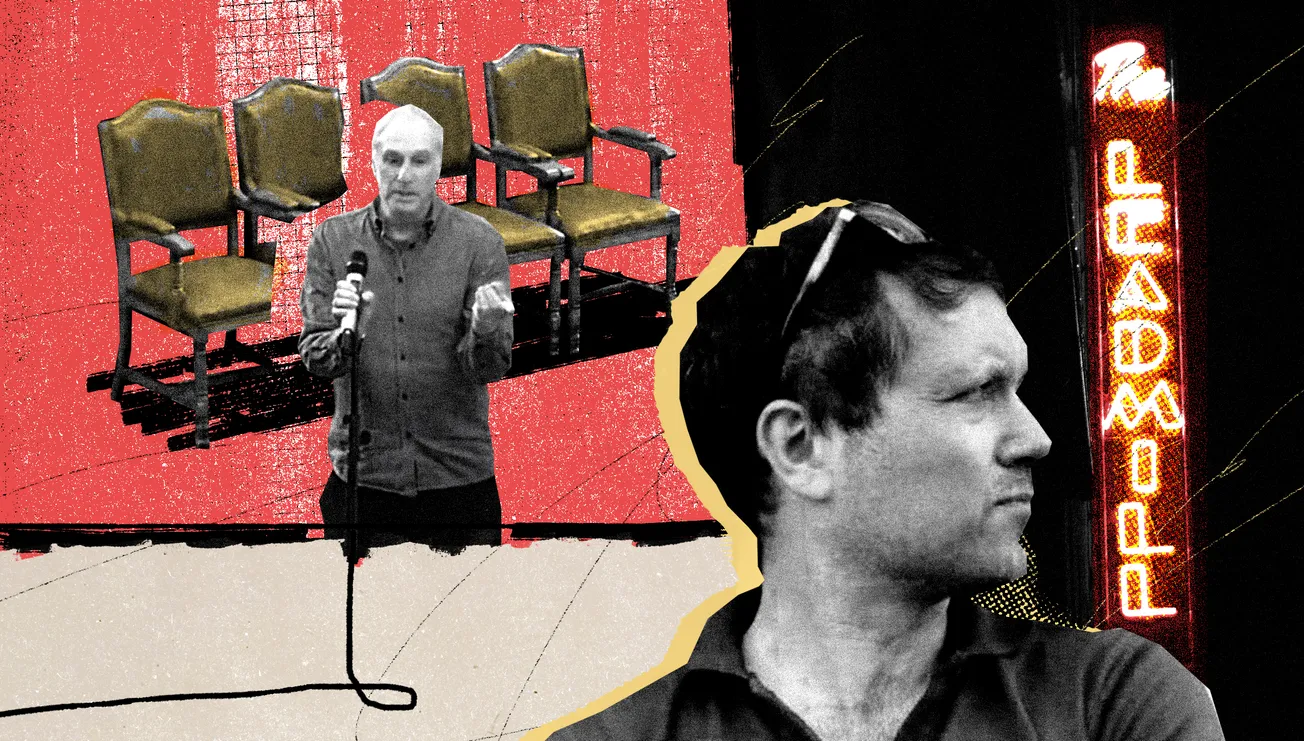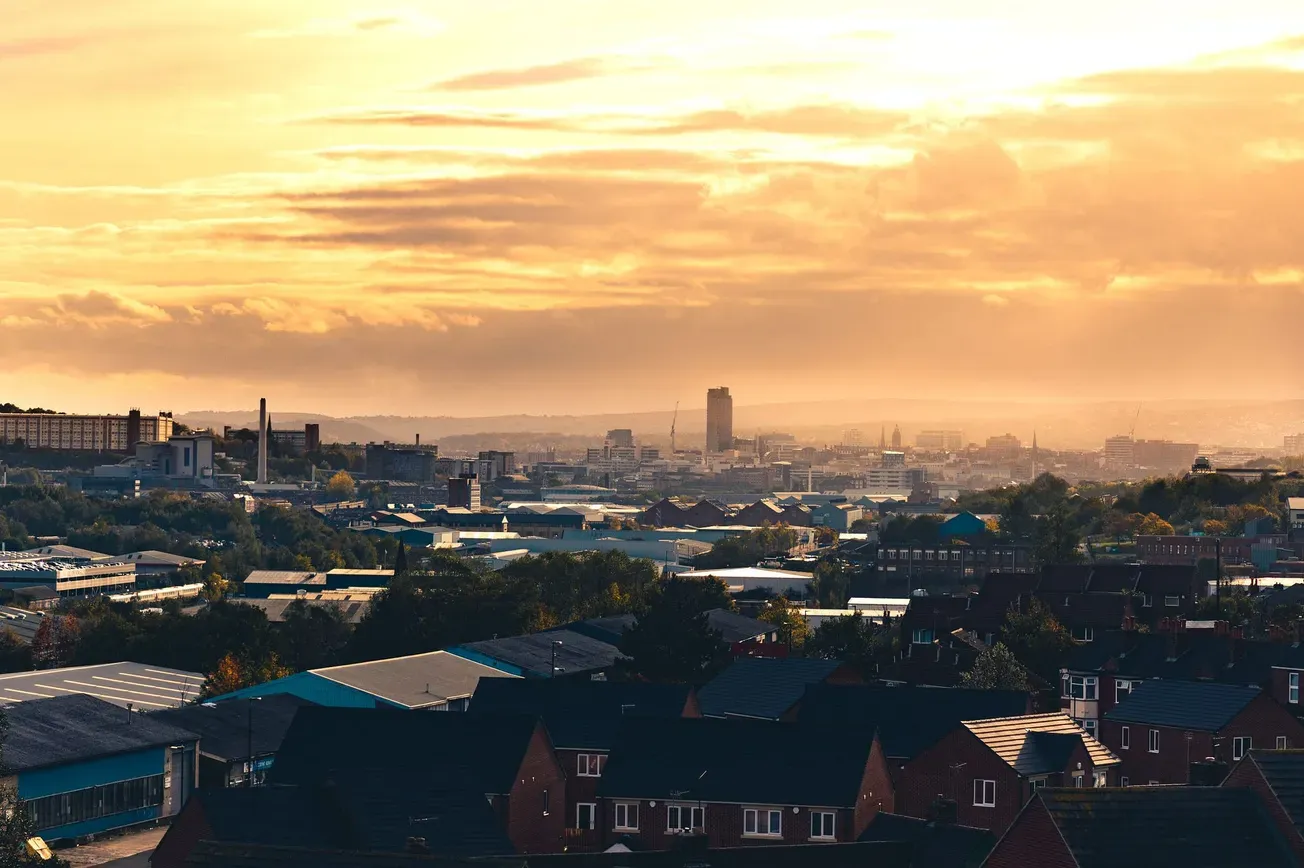In 2009, British journalist Ian Betteridge coined the following adage: “Any headline that ends in a question mark can be answered by the word no.” In his words, headlines like this are deployed by journalists who “know the story is probably bollocks, and don’t actually have the sources and facts to back it up, but still want to run it”.
In November, The Tribune published what quickly became one of our most popular stories ever. “Is Kommune on the verge of kollapse?” asked the headline. Now, months later, we can finally give you the answer: yes, but also no.
Editor’s note: We’ve known about problems at Kommune for a while. But it was only when Victoria joined in June that we had the time and resources to do a proper investigation. Her two stories last year and this one today are the result of months spent speaking to sources, going through documents and meticulously checking facts. It’s the kind of journalism that’s only possible because people are prepared to fund it by becoming members. If you want to support the future of high quality journalism in Sheffield, join today.
Kommune is dead, long live Kommune
Kommune, a food hall in the former Co-op building in Castlegate, closed a few hours early on 28th February. The place is normally open until 11pm on Wednesdays, but this night, staff left around 7pm. Other than this lone aberration, to an outside observer Kommune died peacefully, as if in its sleep. Not with a bang; not even with a whimper.
Yet when I head down to Castlegate earlier this week, the lights are on, the doors are unlocked, and food is being sold. The place is fairly empty of customers but, given it’s early afternoon on Tuesday, that’s not too surprising. It looks almost entirely unchanged since my last visit back in November. You’d be forgiven for thinking nothing had happened here.
You’d be wrong. While the building opened for business as usual on 29th February, and although the neon Kommune sign still glows faintly in its window, the food hall that exists in the Co-op building now is not what it once was. It merely wears its predecessor’s skin.
On 28th February, the WhatsApp group chat for Kommune staff received a series of messages from their HR manager. She was technically not supposed to be working, given she’d just had a baby, but made an exception “to make sure everyone is informed and as stress-free as possible”. She told staff she wasn’t sure how much they “might have heard, or not have heard” but Kollider Social, the company that started Kommune, would be going into liquidation soon. “Tomorrow I will be sending out redundancy letters to everyone (including myself),” she added.
Even though their pay slips were issued as normal the day before, staff were told they wouldn’t receive their salaries for February — at least not until after the outcome of the liquidation. Samuel Rowe, 23, remembers having specifically asked his boss at the time if they were likely to see that money, given it had been obvious over the past month that what little financial stability the company once had was abruptly evaporating. He says he was told not to worry, which only made the news even more galling. This is why Kommune closed at 7pm that day. As another staff member, who asked to remain anonymous, puts it: “If we were not getting paid, we were not working.”
Then again, I am speaking to both of these men at Kommune in the middle of their work day — clearly something convinced them to come back. The anonymous worker even tells me he is “cautiously optimistic” about the food hall’s future, thanks to its new owners, who immediately offered all staff the jobs they had just lost. It’s not an optimism Rowe seems to share. “They seem OK,” he says of the new owners, “but I don’t want to be here anymore. This building is cursed.”

If you’ve read our previous coverage of Kommune, then you’ll know that its former parent company Kollider Social hasn’t been doing so well for some time. According to insiders, this is also true of the entire Kollider group — a collection of highly interconnected companies in very different industries that have occupied Castle House for almost five years, all but one of which is now going into liquidation. The group includes Kollider Projects, responsible for subleasing parts of the building to third parties like Zoo Digital and the National Videogame Museum. It also includes Kurious Arts, a film post-production studio that its co-founder Adrian Hackett claimed last November was “becoming the envy of many other cities” and was planning to open a hub in Madrid this year.
Kurious Arts is the lone Kollider company which will continue to exist beyond the immediate future. According to Hackett — a tax lawyer for the prestigious law firm Freeths who was, until recently, co-owner of all the Kollider group companies with his long-time friend Nick Morgan — those Madrid plans are still on. He can’t comment on the other companies, given he abruptly resigned as a director of all six on 3rd January this year, but “Kurious is going strong” and will remain in Castle House for the time being.
“Freeths permits me to work with Kurious because it’s an amazing project,” he adds, a comment which seems to suggest his law firm had a hand in his decision to resign from the group’s other projects. He also repeatedly points out that he is “not permitted” to speak to me, even though there are loads of things he “would love to say,” although he doesn’t answer when I ask who has forbidden him from doing so. “Maybe when the dust has settled there will come a point, when I’ve retired, and this story will be told,” he says, “assuming anyone is interested by then.”

He is at least willing to confirm that Kollider Projects and Kollider Social are both going into liquidation. It’s not surprising, given they were ordered in late November to pay their landlord more than £351,000, but it’s also a development he doesn’t seem too disheartened by. “Nick and I are pleased,” he says, and he believes the new owners of Kommune are too. His only request is that I don’t write that staff have not been paid — although at the time of writing, their February wages remain outstanding — because this would be “really misleading and distressing for them”. The company will need to finish the liquidation process before its outstanding debts can be settled. “There’s a process and we have to follow the legalities,” he says. “The liquidator is going as fast as he can.”
It doesn’t surprise me, given Hackett’s resignation from Kollider Social in early January, that this is the month when Kommune employees tell me the money started really drying up. “Pretty much from the start of January, the writing was on the wall,” Rowe recalls. According to those familiar with the Kollider group, Hackett was always the one bankrolling the operation. Even Morgan previously conceded that the other man was in charge of the “funding element” of their joint ventures.
In January, Rowe claims multiple suppliers for Kommune’s in-house bar stopped getting paid and, understandably, stopped sending deliveries. “We had no beers, no spirits,” he says, “we had completely run out of wine and some soft drinks.” For a while, they received “dribs and drabs” from the few suppliers willing to be more flexible but, by late January, even these had come to an end. “It was quite clear that something was very fundamentally wrong,” he says. “You can’t really come back from owing people that much.” At least one supplier is refusing to work with the new owners, given how badly they’ve been burned.

In February, it only got worse, as Kollider Social made all of its floor staff redundant. The plan had reportedly been to develop an app that would allow customers to “click and collect,” in order to replace them, but Rowe says this “had still not come to fruition” by the time they were fired. “In the meantime, they were using agency staff, which cost a lot more.” The new owners have since also offered these staff their jobs back.
However, the anonymous employee claims none of these developments were quite as worrying as the news in January that a number of management staff at Kollider Projects had handed their notice in. Problems like running out of stock due to non-payment of suppliers “were kind of par for the course,” he claims, adding: “I didn’t worry so much, I was kind of used to that. But the management leaving made me think I should probably get out while I still could.”
Despite Hackett’s insistence that it would be deeply distressing to staff to suggest they will not eventually be paid their February wages, he adds that he’s since “made peace” with the fact he won’t get the approximately £2,000 he is owed. Among staff, however, he claims “there’s rumours that we’ll have to personally take Adrian to court” to have any chance of seeing the money — something Rowe had also heard would be necessary.
In general, he seems pretty unbothered by the whole thing and, despite his feeling he should jump ship only two months ago, has elected to stay at the new Kommune. “My past two jobs have screwed me over, so I’m kind of used to it,” he says. “The new owners have come in and been very supportive, so that’s a nice breath of fresh air.” Their measures to help staff out include placing everyone on weekly pay at first, so they didn’t have to wait a month for their next wage, and offering money to any staff who had been left “completely screwed” by the collapse of Kollider Social, although he’s not sure if these were loans or not.
That said, it’s not quite telling the full story to refer to Kommune’s current management as the “new owners,” even though this is the phrase staff tend to use. In actuality, they have been on the scene since the food hall first opened its doors.

Kommune food hall is now being run by a partnership between Northpoint Developments — the owner of Castle House and Kollider’s former landlord — and local businessman John Perry, who attentive readers may recall was one of the business’ original four founders. Perry, who owns the coffee shop Tamper, was enlisted by Hackett and Morgan back in 2019 to help run the business but left at the end of 2021.
He won’t be drawn into explaining why, although others have alleged it was down to a personal falling out with Hackett. “Obviously people either get on or don’t get on, or have different visions for what space could be,” he says. “That’s all I can say.” He’s also unwilling or unable to say if his involvement will be long-term or describe any specific plans for the space, other than the fact they will be “making a few changes for the better”.
What he’s most keen to get across is that the takeover on 29th February will prove hugely positive for Kommune, Castlegate and the whole of Sheffield. “I just want to get it back to the original plan,” he adds, “which was about creating an amazing space for the people of Sheffield, with really good food traders and amazing staff.” He would not have taken Northpoint up on their offer to come back, he says, if he wasn’t certain he could help turn things around. “I firmly believed, when I first started, that it had such great potential.”
Rowe shrugs when I ask if he finds such bullishness convincing. “Surely it can’t get any worse,” he says. His anonymous coworker, who adds that he’s heard rumours the takeover was “in motion for a few months” before it finally arrived, is “feeling pretty positive about it”. He’s heard Northpoint wants to renovate the interior and host regular events, “to bring a bit more excitement to the space, so it’s not so stagnant”. Like Rowe, he’s unsure if they’ll end up keeping the name. “Kommune has not got a great reputation generally but it is a fairly big name,” he muses.
As for Northpoint Developments, which has previously rebuffed all my requests for comment, their spokesperson claimed their main priority is “ensuring the long-term success of Kommune,” adding that the company is working closely with the former operators “to ensure a seamless transition” to the new management. “We look forward to the next chapter with our existing community as well as welcoming new occupiers to Castle House.”

Comments
Sign in or become a Sheffield Tribune member to leave comments. To add your photo, click here to create a profile on Gravatar.







